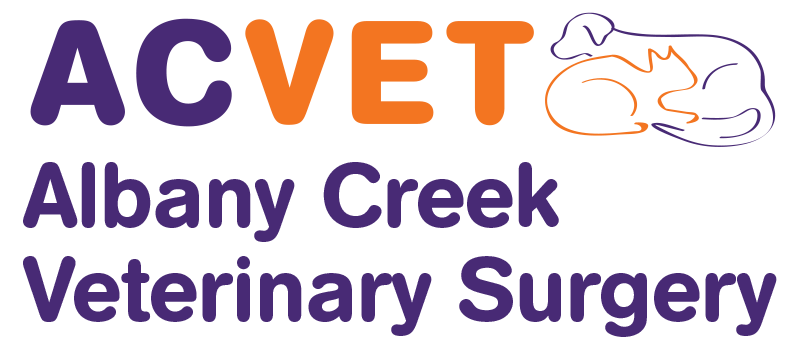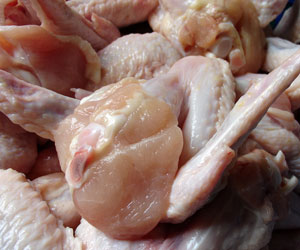In early 2018 there has been a recent social media circulation of the issues pet owners may face when feeding raw food, specifically chicken, to their dogs. The same issues can be potentially occur with cats.
Campylobacter, the bacteria identified in the recent study is a known food contaminant in human and pet chicken. Eating raw or undercooked, poorly stored chicken of any food can lead to Campylobacter or food poisoning.
Typical effects of this are classic food poisoning symptoms of vomiting, diarrhoea and stomach cramps. The same organism is usually responsible in both humans and pets.
Many homes and pet owners will feed raw chicken to their pets and there will be no consequences. However there is a risk spectre with food that we all eat, or feed our pets. The additional less common, but more serious “reaction” of the immune system becoming overactive and triggered by this organism can lead to the more serious consequences reported of paralysis and even death. In humans this is referred to as Guillain-Barre syndrome (GBS).
This information and evidence has been around in humans for some time and it is not surprising that the same risks exist in dogs (and possibly cats).
At Albany Creek Veterinary Surgery we diagnose 3 to 5 cases of Campylobacter a year. While we can usually treat these quite successfully with a specific antibiotic it does leave the normal healthy flora of the gut deranged for some time often needing extended probiotics. We have not experienced the more serious immune mediated symptoms, but this is always possible.
What to do?
The options:
1. You can stop feeding raw food (this could mean your pet will give you a poor TripAdvisor review)
2. Or; if you choose to feed your pet raw food then we recommend you consider these actions:
- Choose human grade food over pet grade food,
- Store the product in the fridge promptly,
- Defrost frozen raw food in the fridge, feed from the fridge,
- Do not feed your pet food you would not eat (yes, really!)
- Purchase from a reliable and known supplier and follow best by or use by dates
- Check the origin of the food.
Read on to see more information and studies. But do always keep this information in perspective to be informed and minimise risk by good food practices that we should follow for all the family!
Read the recent dog study from University of Melbourne Vet School
The following is information we have long supplied to our clients who ask about raw diets: The Risks of Feeding Raw Food to Your Pet


 What’s inside the new building?
What’s inside the new building?